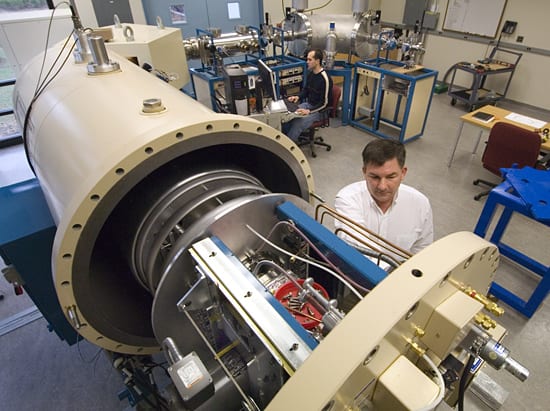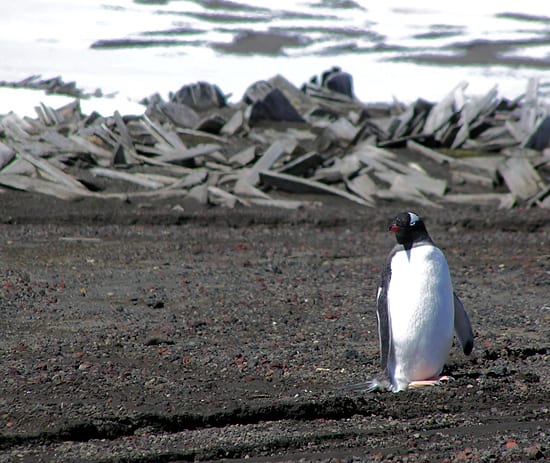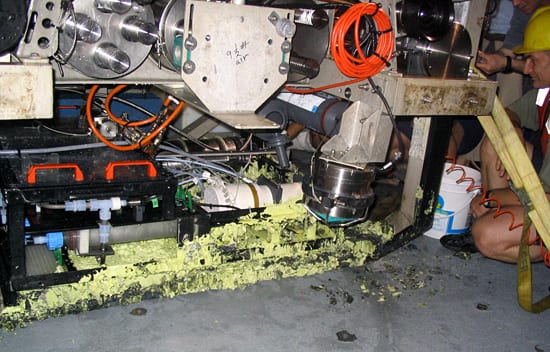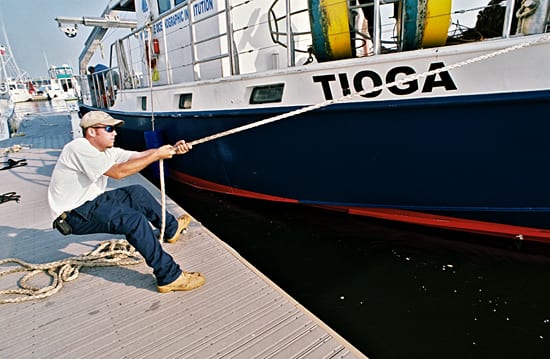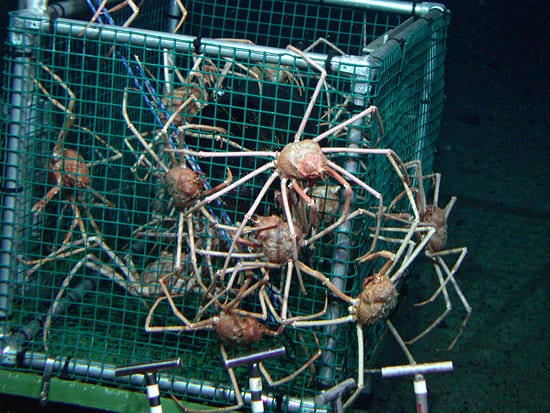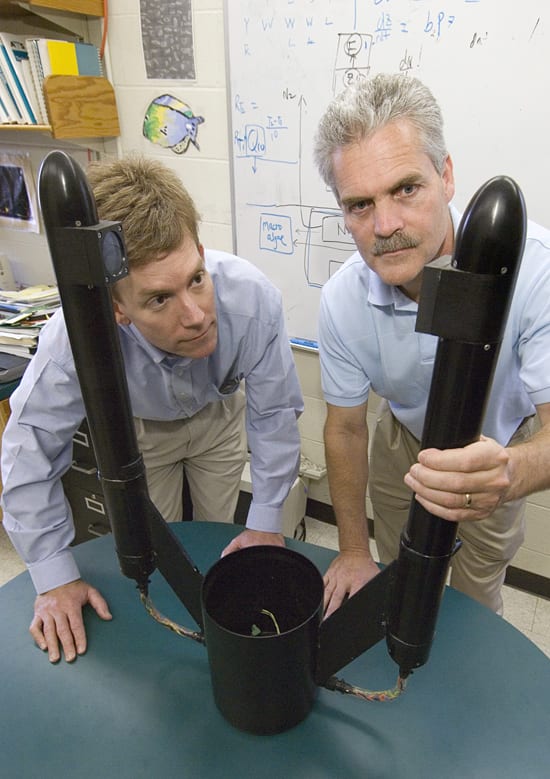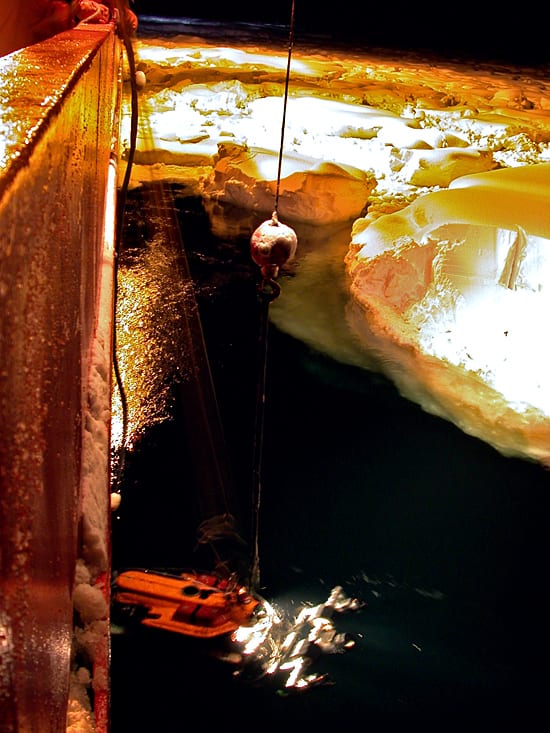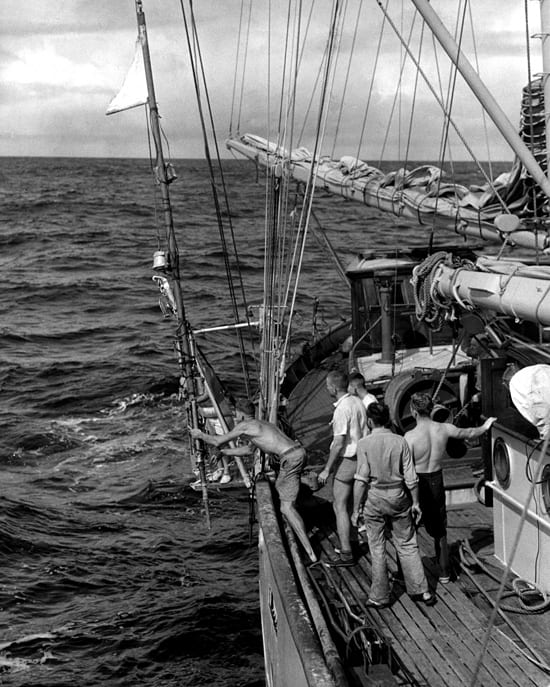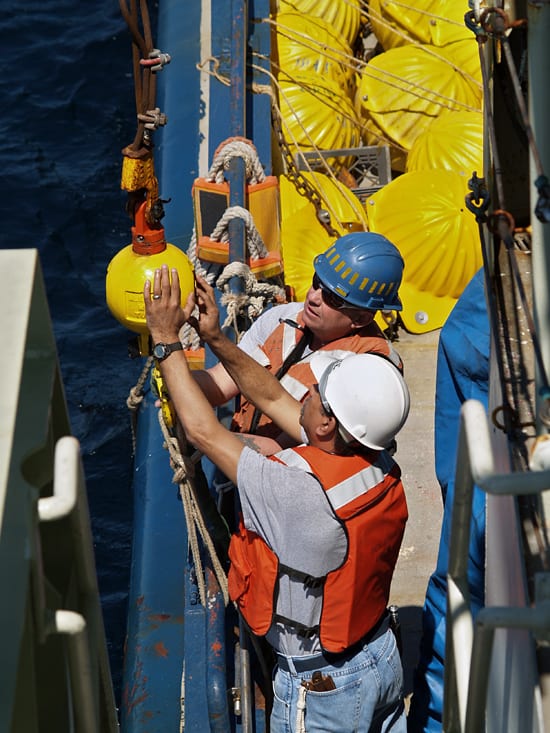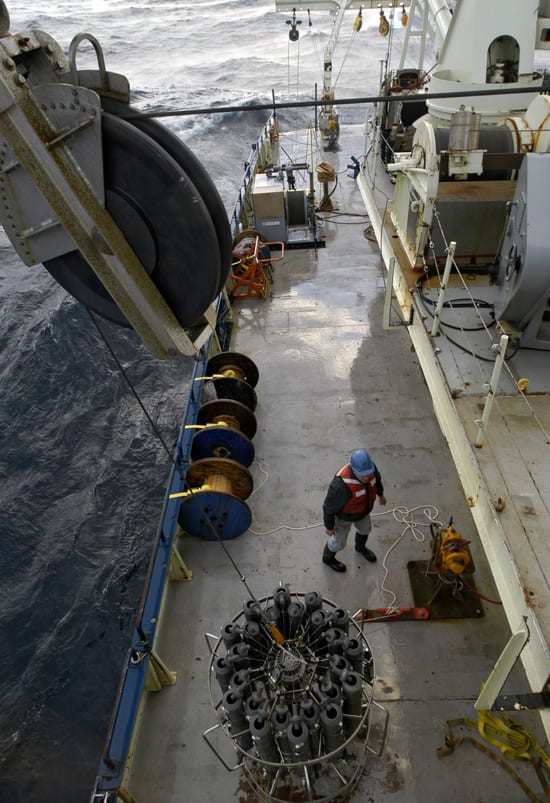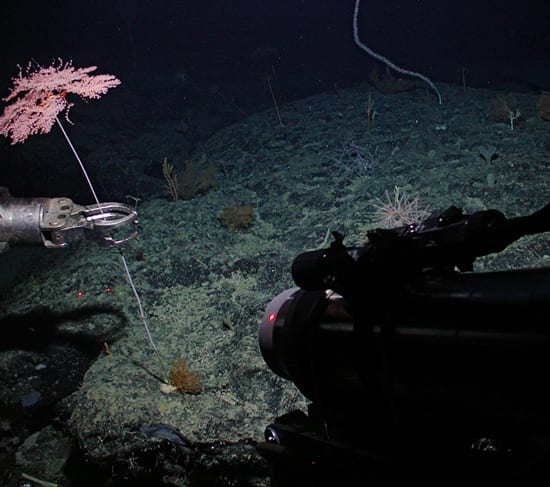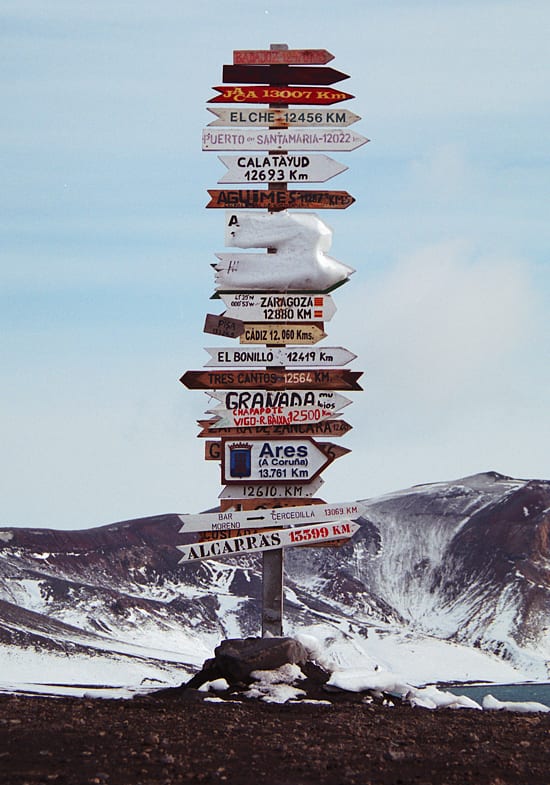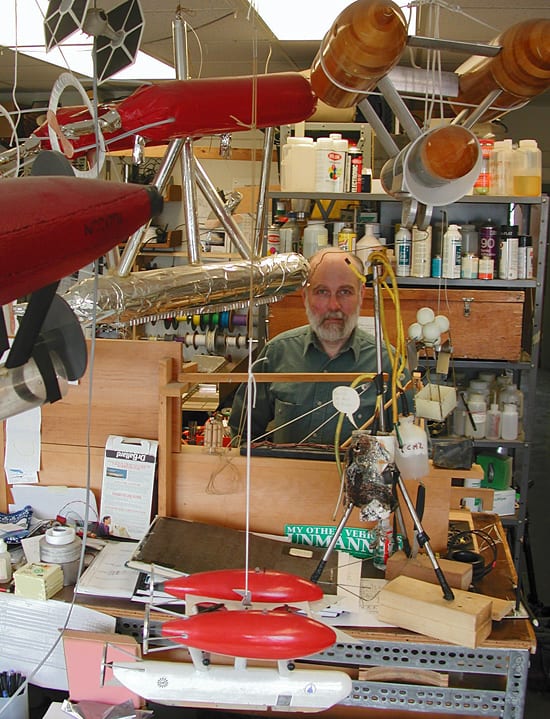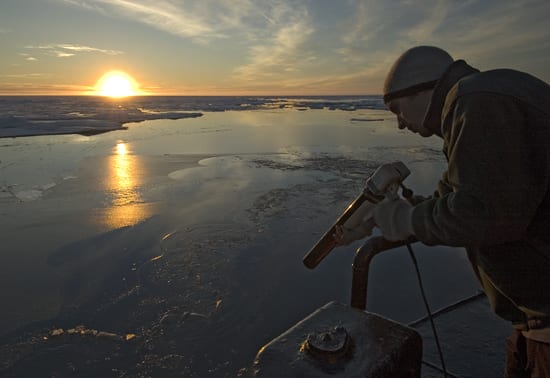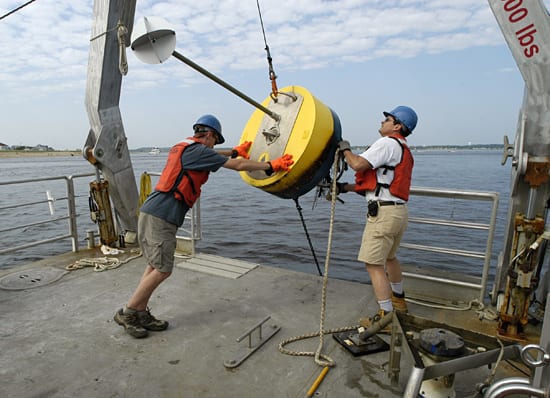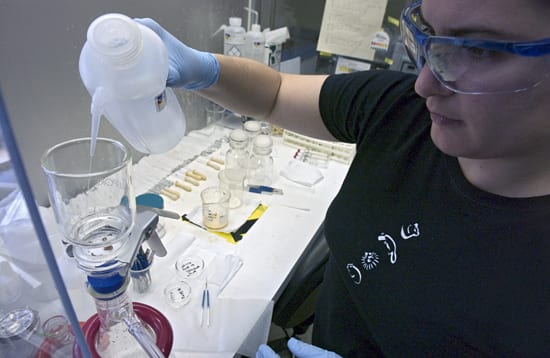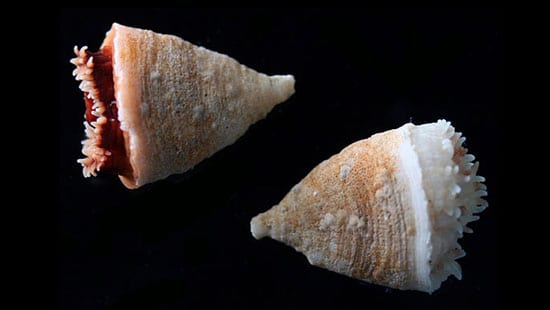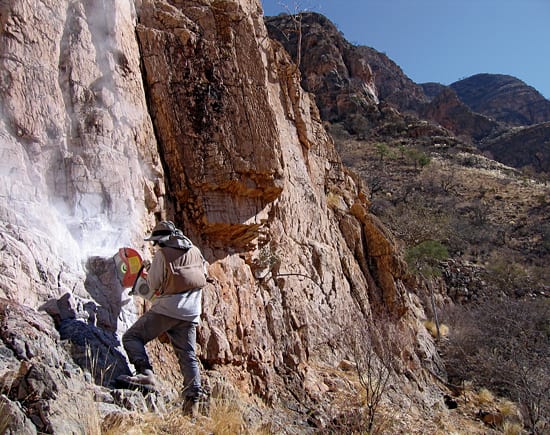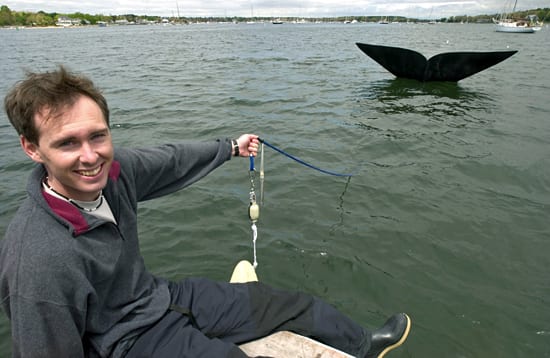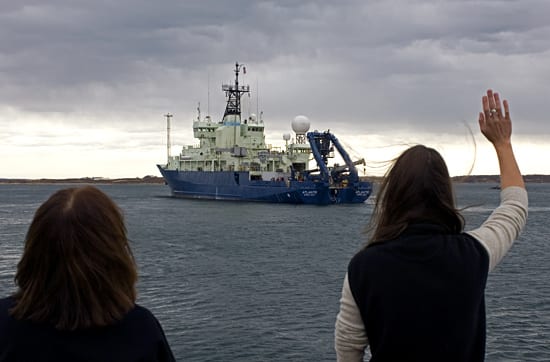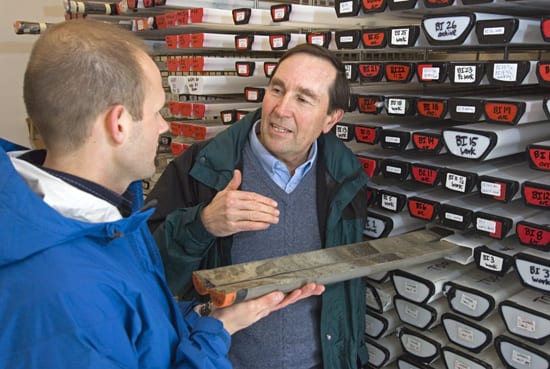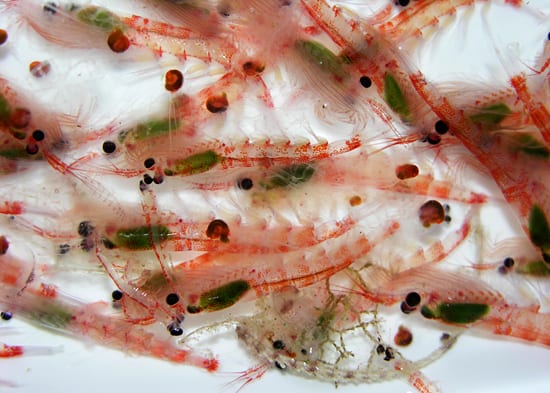Multimedia Items
High Technology
Mark Roberts (foreground) and Brad Rosenheim work on the Continuous Flow Accelerator Mass Spectrometer (CFAMS), a new C-14 measurement system being built at WHOI. When complete, CFAMS will be a…
Read MoreWhere is Everyone?
Pure penguin coolness on Deception Island, 2005. (Photo by Regina Campbell-Malone, Woods Hole Oceanographic Institution)
Read MoreBathed in Sulfur
Sulphur coated the frame on the remotely operated vehicle (ROV) Jason during a recent cruise to the western Pacific. Jason captured close-up images of volcanic eruptions and was bathed in…
Read MoreHold Tight
Ian Hanley prepares the 60-foot R/V Tioga for arrival during a break in mooring recovery operations on the Merrimack River. (Photo by James Kent, Woods Hole Oceanographic Institution)
Read MoreLunch Time
Crabs cover the sample basket on the front of DSV Alvin during 2002 dives near Patton Seamount in the Gulf of Alaska. (Photo by Woods Hole Oceanographic Institution)
Read MoreUnderwater Microscope
Dennis McGillicuddy (left) and Cabell Davis with a video plankton recorder (VPR) designed to work on the autonomous underwater vehicle REMUS. The VPR is an underwater video microscope system that…
Read MoreEyes Under the Ice
The remotely operated vehicle (ROV) Searover is deployed off the starboard side of the polar research vessel Nathaniel Palmer near Alexander Island, Antarctica. Searover captured video imagery underneath the ice…
Read MoreSmile for the Camera
Deployment of an underwater camera off R/V Atlantis(circa 1948). Maurice Ewing and his student Allyn Vine produced the first photographs of the deep seafloor in 1940 during seismic experiments aboard Atlantis,…
Read MoreBack on Board
Ken Rand and Diego Mello (foreground) work on the deck of R/V Oceanus during an April 2006 cruise in the Northwest Atlantic. The pair helped recover moorings as part of operations…
Read MoreCarbon Kitchen
Panorama of the sample preparation lab for radiocarbon dating at the National Ocean Sciences Accelerator Mass Spectrometry Facility (NOSAMS) at WHOI. An addition completed in 2004 houses a newly designed…
Read MoreSurveying the Shelf
A CTD (bottom) with rosette for conductivity/temperature/depth measurements is readied for deployment from R/V Oceanus during a winter 2005 cruise to study circulation in continental shelf and slope waters north…
Read MoreSeafloor Garden
DSV Alvin’s manipulator collects a sample of coral during dive 3904 to the Kelvin Seamount off New England in July 2003. A video camera is visible at right. Scientists observed…
Read MoreWhich Way??
A polar signpost on the Western Antarctic Peninsula provides an unusual reference point for scientists working in and around the continent in February and March 2003. (Photo by Woods Hole Oceanographic Institution)
Read MoreOcean Toymaker
Amidst various models of the Autonomous Benthic Explorer (ABE), engineer Al Bradley has designed numerous instruments and vehicles. The autonomous underwater vehicle ABE and its successor Sentry are two of…
Read MoreSun and Sea
Will Burt launches an XCTD (Expendable CTD), used to measure conductivity, temperature and density, during the Beaufort Gyre Freshwater Experiment in the Arctic Ocean in 2005. (Photo by Christopher Linder,…
Read MoreSteady Hands
Postdoc Dave Ralston and Jay Sisson aboard coastal vessel Tioga recover a surface buoy from the Merrimack River. The round object at the top of the buoy is a radar reflector. (Photo by James…
Read MoreA Pirate’s Prize
Researchers at the National Ocean Sciences Accelerator MassSpectrometry Facility at WHOI prepare samples of wood from the wreck of pirate Blackbeard’s flagship Queen Anne’s Revenge for radiocarbon dating to determine its…
Read MoreCorals Under Ice
Sawing for Samples
Bernhard Peucker-Ehrenbrink used a saw to collect samples of 635-million-year-old rocks from the iridium boundary in a cliff in the Hoanib Valley in Namibia. He is using geochemical tracers to detect the…
Read MoreA Whale’s Tail
Jeremy Winn (University of Maine) harnesses a fiberglass replica of a right whale’s tail during tests with WHOI scientists in Marion Harbor, Mass. Scientists are trying to find ways to…
Read MoreOff to Sea
R/V Atlantis departs on another voyage from the Woods Hole dock in April 2006. The vessel is often at sea away from home port for several years, with each leg…
Read MoreThe Old Days
Sybil Campbell worked at WHOI from 1954 to 1960 as a research assistant with geochemist Vaughan Bowen. Bowen brought nuclear studies to WHOI, with research projects to detect the presence…
Read MoreMuddy Mysteries
MIT/WHOI Joint Program student Jon Woodruff (left) and Senior Scientist Don Anderson examine a sediment core sample from the Caribbean island of Saint Kitts for a study using coastal flood deposits…
Read MoreDinner Time
The most abundant zooplankton in Antarctic waters are Antarctic krill (Euphausia superba), a focus of Dive and Discover Expedition 10. These two-inch long pink crustaceans are the main food source…
Read More
